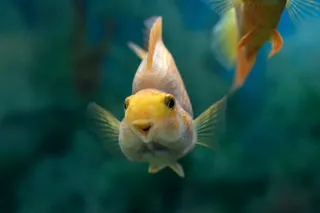You might say the benefit of staying alive is an actual no-brainer: even brainless lifeforms do their best not to die. For the most part, anyway. When they're under stress, single-celled organisms may opt to cut up their DNA and neatly implode. A new study hints that by committing suicide in this way, an organism helps its nearby relatives to stay alive—and hurts its rivals at the same time. In animals with many cells like us, cellular suicide happens all the time, and it helps keep the whole organism in tip-top shape. As embryos, for example, the cells that form our little paws kill themselves off to make fingers. We're born with a brain that's too densely connected, and as we grow the superfluous brain cells die to get things in order. Even as adults, our bodies' regular upkeep includes constantly adding new cells and commanding older ones to die. ...
Suicidal Algae Help Their Relatives and Harm Their Rivals
Explore the cellular suicide benefits in single-celled organisms and how it aids relatives while harming rivals.
More on Discover
Stay Curious
SubscribeTo The Magazine
Save up to 40% off the cover price when you subscribe to Discover magazine.
Subscribe












